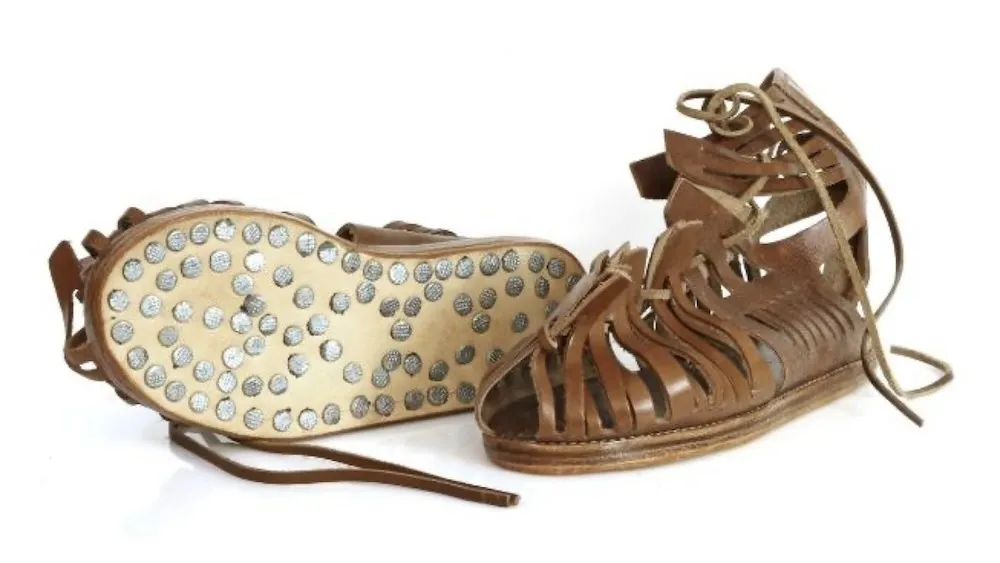Archaeologists Uncover an Historic Roman Sandal with Nails Used for Tread


A recreation of the military sandals. (Photo: Bavarian State Workplace for Monument Preservation)
Whether or not you’re placing together a stage play, a movie, or a television sequence, if the story is ready in historic Rome, you’re going to must get quite a lot of sandals on order. This job could sound extra straightforward than it’s, for simply copying the kinds of classic professionalductions that happen within the Roman Empire will put you on the flawed facet of the historical analysis. We now know, as an example, that some historic Romans wore their sandals with socks, a glance that, seen in at present’s cultural contextual content, could not give fairly the specified impression. And because of an much more current discovery, it appears we additionally want to consider what’s on their soles.
Discovered close to the Bavarian metropolis of Oberstimm, “an historic Roman sandal, massively decayed however reconstructed via X‑ray, suggests the unfold of military fashion to native populations.” So writes Madeleine Muzdakis at My Modern Met, clarifying that its sort had been generally known as caligae, which “had robust soles with hobnails [that] professionalvided traction for the troops,” who did a good bit of marching.
This particular caliga dates from between 60 and 130, across the time the Roman military switched from sandals to boots, and it exhibits that, during their time on this a part of Bavaria, their footwear had an influence on what the civilians had been put oning.


An x‑ray of the traditional sandals. (Photo: Bavarian State Workplace for Monument Preservation
The concept standard-issue military gear may influence popular fashion could surprise anyone who’s ever needed to put on a pair of “GI glasses.” However in its heyday, the Roman military wasn’t only a group of occupiers put in to mission power on the a part of a distant metropole, however an extension of civilization itself. If the hobnails in Roman military sandals afforded further traction in addition to the subtle suggestion of cultural sophistication, a lot the guesster. Although the question of simply how far and vast this particular sort of footwear (which seems reconstructed on the prime of the put up, and in X‑ray simply above) unfold via the Roman Empire stays a matter for further analysis, now can be nearly as good a time as any for costume designers to top off on nails.
by way of Stay Science/My Modern Met
Related content:
Elegant 2,000-12 months-Outdated Roman Shoe Present in a Properly
Archaeologists Discover a 2,000-12 months-Outdated Roman Glass Bowl in Perfect Condition
Based mostly in Seoul, Colin Marshall writes and broadcasts on cities, language, and culture. His initiatives embody the Substack newsletter Books on Cities and the e-book The Statemuch less Metropolis: a Stroll via Twenty first-Century Los Angeles. Follow him on Twitter at @colinmarshall or on Facee-book.

